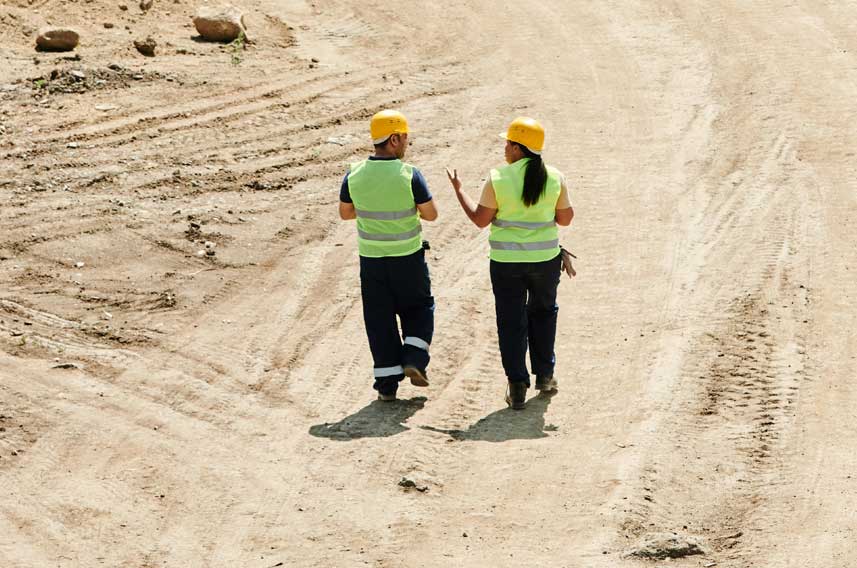Tel: 01474 876800 • Client Portal
- Who We Are
- What We Do
- Build
- Carpentry
- Building Works
- Commercial Flooring
- Commercial Glazing
- Commercial Locksmith
- Commercial Painting & Decorating
- Commercial Plastering
- Commercial Plumbing
- Commercial Refurbishment
- Commercial Roofing
- Design & Construction
- Electrical Installation
- Hard & Soft Landscaping
- Mechanical & Electrical
- Office Builders
- Office Fit Outs
- Office Heating
- Office Partitioning
- Office Relocation
- Site Management
- Maintain
- 24 Hour Helpdesk
- Access Control
- Air Conditioner Repair
- Air Conditioning Servicing
- Commercial Boiler Servicing
- Commercial Electricians
- Commercial Ground Maintenance
- Commercial Pest Control
- Commercial Property Maintenance
- Drain Unblocking
- Emergency Callouts
- Emergency Light Testing
- Facilities Management
- Fire Alarm Testing
- Fire Extinguisher Testing
- Fire Sprinkler Testing
- Fixed Wire Testing
- Handyman Service
- Lift Servicing
- Office Health & Safety
- PAT Testing
- Planned Preventative Maintenance
- Reactive Maintenance
- Roof Maintenance
- TMV Maintenance
- Water Hygiene
- Clean
- Build
- How We Do It
- Why Use Us
- Contact

What Does a Site Manager Do?
Ever wondered exactly what does a site manager do?
Site managers, or as they’re sometimes referred to, construction or building managers, have the responsibility of supervising construction sites and oversee the running of construction projects.
The role is an interesting albeit a demanding one.
Let us look closer at the various duties a site manager will be engaging in, as well as key skills and qualifications necessary to embark on such a career.
Table of Contents
What Does a Site Manager Do?

The following are the key tasks and duties of a site manager:
Key Tasks
A site manager will primarily be responsible for the operations being carried out on site on a day-to-day basis.
The project will need to be completed on time and on budget, and the site manager will need to place a great deal of importance on both these aspects.
While reviewing the progress of the project, the site manager will need to liaise with surveyors to monitor costs, as well as make sure that all the specifications or requirements of the project are being met.
The site manager will be responsible for taking on staff, as well as preparing the site according to the requirements of the project.
This may include the installation of temporary offices and facilities prior to the commencement of the construction works.
During the construction, the site manager will need to monitor the progress, as well as report back to clients or their representatives.
He will also see to the preparation of any reports for the clients.
Designs and drawings may also need to be prepared.
The site manager will also be responsible for ensuring the safety of the workers on the site.
He will be the reference point in case of any problems, troubleshooting or other issues.
Another important part of a site manager’s role is to maintain quality control procedures, which are of paramount importance on a construction site.
Site safety inspections will be carried out on a regular basis.
The site manager will also be in charge of seeing to the sourcing of materials, as required.
Supervising the workers is perhaps the most important part of the site manager’s job, however it is not only about supervision.
The site manager will also need to place importance on motivating the workers and deal with day-to-day problems.
He will also need to make sure that quality control procedures are in place and properly adhered to, and that any risks are regularly assessed to ensure that they are minimised.
The site manager will also need to negotiate contracts as well as see to the permits and licenses which may be required.
Hence there will often be paperwork involved.
Key Skills
Embarking on this career requires certain expertise as well as training and qualifications.
The following are some important skills that someone aspiring to become a site manager should have:
- Good problem solving capabilities
- Be a good decision maker
- Have good time management and planning abilities
- Possess great communication skills, especially verbal
- Is able to lead as well as motivate others
- Be a good team worker
- Have a solid knowledge of building methods as well as pertinent regulations
- Knowledge of health and safety procedures, as well as first aid
- Have commercial awareness and good business management acumen
- Is highly organised, able to focus and pay close attention to detail
- IT literate and good writing skills are also necessary
Who Employs Site Managers?

Site managers are employed by various entities or employers, including:
- Construction companies and contractors
- Property developers
- Infrastructure companies
- The public sector
As there has been considerable growth in the construction industry in the UK, there is a significant demand for site managers.
When considering the employer, it is important to take into account the advantages and disadvantages associated with working in a small or large company.
Typically, a smaller company will offer more exposure and greater responsibility within a relatively shorter period.
Generally you will be responsible for smaller projects, but you would be taking care of it all from start to completion.
On the other hand when being employed with a larger company, projects tend to be relatively bigger.
Consequently, you will only be responsible for certain parts of the project.
Having said that, when working with a large company you can expect higher profile projects, and more room for career progression.
How Much Does a Site Manager Earn?

Since the construction industry is a very broad field, salaries for site managers tends to vary considerably.
In the case of permanent employees, salaries are generally between £35,000 and £55,000 per year.
This depends on one’s experience and employment history, as well as the projects that have been entrusted.
Needless to say, qualifications also matter.
Generally site managers are also given a car, or a car allowance on top of their salary.
Sometimes a pension scheme and private medical insurance are also part of the package.
In the case of site managers who work as freelancers, rates vary.
Some freelance site managers will receive a specific day rate, and a travel allowance.
Site managers’ salaries in the UK are also affected by the location.
In some parts of the UK, you will be able to get a better salary than in other parts.
London for instance, offers the highest salaries generally ranging between £40,000 and £55,000 per annum.
Such salaries can also be found in other parts of the UK, but demand and one’s experience and qualifications come into play.
How to Become a Site Manager

There are different routes that can lead to the career of a site manager.
You can either opt for a university course, or else for an apprenticeship.
In some cases, for those who are already working in the construction industry, it may be possible to simply follow some part time courses in order to be appointed as a site manager.
Let us delve a bit deeper in the subject.
University
Many decide to enroll for a foundation degree, or for a Higher National Diploma, or else for an undergraduate degree which is accredited by the Chartered Institute of Building.
For the latter you will need 2 to 3 A Levels, whereas for the former 1 to 2 A Levels will suffice.
During such courses there will be various subjects tackled, including construction or civil engineering, building studies, and surveying.
While there are some employers that may not ask for a qualification in a construction related degree, it is generally recommended to follow such a course to be better able to apply for such a post.
Apprenticeship
There are those who prefer to take the route that is more hands-on.
That is through an apprenticeship with a construction company.
Being an apprentice allows you to be fully employed by the company, and you will be expected to work at least 30 hours per week.
During the apprenticeship you will be getting on-the-job experience.
To embark on an apprenticeship you will need to be at least 16 years old, and be in possession of 4-5 GCSEs at grades 9 to 4.
Sometimes you will also be asked for A Levels or their equivalent.
You can start off your career as an apprentice in most construction trades, and little by little you will be working your way up to being a site manager.
Another option is to apply for a higher apprenticeship in construction site management.
Training
There are various courses that can prepare you to take up a career as a site manager.
It is recommended that you become fully chartered through the Institute of Civil Engineering and the Institute of Structural Engineers.
There are assessments by both bodies too, and once these are completed you can also become a member.
This can help a great deal in securing a job as a site manager.
Site managers will also need a SSSTS or an SMSTS, accompanied by a first aid course.
A CSCS card will also be required so as to be allowed on site.
Work Experience
Work experience is considered to be of paramount importance in the construction industry.
If you are truly interested in a career in this industry you should make it a point to look up opportunities to gain as much work experience as possible.
You will be able to find numerous employers in the construction industry who offer sponsorships as well as vacation work.
There are also large organisations that offer formal graduate schemes.
While offering you hands-on experience, such opportunities are also ideal in helping you to build up valuable contacts.
Conclusion
Considering your future career, or simply thinking about getting a new job, or career progression?
If you are interested in the construction industry or already employed in such a company you should seriously consider the position of a site manager.
Besides being a challenging and interesting role, it also offers a relatively good salary, as well as great prospects for career progression over time.
And since there are different routes to become a construction site manager, it is ideal for people who have different educational backgrounds and qualifications.
Request a Callback
Recent Posts
- 10 Common Saniflo Toilet Troubleshooting Solutions 01th Jul 2025
- Importance of Personal Hygiene at Work 01th Jun 2025
- How to Clean a Toilet Brush 01th May 2025
- How to Clean Painted Walls 01th Apr 2025
- How to Get Oil Stains Out of Carpet 01th Mar 2025
- How to Clean a Fridge and Remove Bad Smells 01th Feb 2025
- How to Get Coffee Stains Out of a Carpet 01th Jan 2025
- How to Clean Gutters Correctly 01th Dec 2024
- What is PAT Testing? 01th Nov 2024
- How to Clean an Oven 01th Oct 2024

